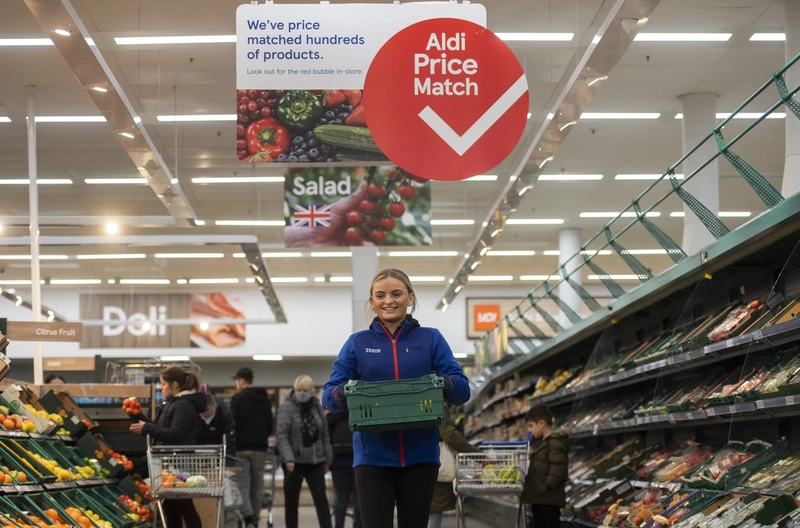- Profits have largely been price-led
- Expectations for this quarter are high
- US broker cuts view a second time
At the beginning of 2023 we recommended buying Tesco (TSCO) as the firm’s share price had halved over the last decade, and as well as representing value the supermarket firm was set to benefit from rapidly rising food price inflation.
The shares have done well, rising more than 25% year-to-date against a gain of less than 1% for the FTSE 100, but with inflation now falling we have to ask whether the grocery sector is past its best?
STRONG FIRST HALF
For the three months to the end of August, Tesco reported an 8.4% increase in UK like-for-like sales against a 9% increase in the prior three months as food-price inflation receded.
In order to attract more customers and tempt them to add more items to their baskets, it cut the price on over 2,500 products making them 12% cheaper on average than at the start of the year.

The firm’s overall market share grew by 0.3% compared with a year ago to 27.2%, but over the same period the discounters – or as they prefer to be called ‘limited-assortment retailers’ – Aldi and Lidl increased their share from 16.4% to 17.7%, mostly at the expense it must be said of Asda, the Coop and Morrisons which lost a combined 1.2% of market share, according to figures from retail consultancy Kantar.
Tesco chief executive Ken Murphy was resolutely upbeat, as usual, raising the outlook for group retail operating profit and free cash flow, while admitting that having fallen in the first half inflation would ‘continue to do so in the second half of the year’.
SECOND DOWNGRADE
The firm doesn’t issue its third quarter and Christmas trading update until 11 January, and expectations are high that supermarkets will win big this festive season.
However, analysts at JPMorgan Cazenove cut their recommendation on Tesco today from ‘Neutral’ (meaning a market weight in the shares) to ‘Underweight’ while cutting their price target to 230p against the current share price of 283p.
This is the bank’s second downgrade since September on the basis disinflation would impact the firm’s sales, margins and earnings.
‘We see Tesco’s outperformance previously linked to executed self-help and macro tailwinds, therefore unlikely to be structural/sustainable over time without incremental investment’, said the analysts.
‘Long positioning is crowded, whilst Tesco is now past peak positive newsflow/LFLs/margin/free cash flow/capital return cycle, the team added.
CONSTANTLY SHIFTING LANDSCAPE
The grocery sector is fiercely competitive, with both Aldi and Lidl planning to expand aggressively to capture more market share.
Aldi also announced this week it was ‘slashing’ the price of 180 Christmas products by an average of 20%, including chocolates and prosecco, having already cut the price of 300 items like Christmas puddings, turkey crowns and Brussels Sprouts.

Meanwhile, Lidl said footfall in its stores was up 11% on last year over the last six weeks as cost-conscious shoppers stocked up on Christmas essentials with two mince pies selling every second since September.
The retailer predicted it would see a record-breaking Christmas as hard-pressed households continued to trade down from its larger rivals.

